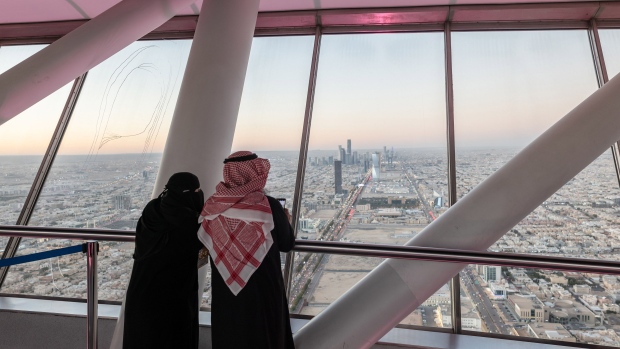Jan 10, 2024
Saudi Arabia Overtakes the UAE in Middle East VC Fund Raising
, Bloomberg News

(Bloomberg) -- Saudi Arabia secured more venture capital investments than its main regional competitor, the United Arab Emirates, for the first time last year as government-backed funds boosted spending in the sector.
Startups in the kingdom raised $1.4 billion, a 33% increase from a year earlier and just over half of all venture capital funding raised in the Middle East and North Africa in 2023, according to Dubai-based venture capital data platform Magnitt.
Saudi Arabia’s tech sector was boosted by the government’s “focus on innovation, a dedicated unicorn project, and investments from sovereign funds such as SVC, Jada, and Sanabil,” according to Magnitt. In the fourth quarter, it was helped by two large deals involving local fintechs Tabby and Tamara, which allowed the kingdom to grab a top 5 spot for emerging market funding alongside Singapore, Turkey, Indonesia and Vietnam.
“It has been quite remarkable to witness the growth of the Saudi VC ecosystem. Relative to other countries across MENA, the kingdom was late to the VC space,” Magnitt founder and Chief Executive Officer Philip Bahoshy said in an interview. “2023 closed the year at almost $1.4 billion with 2 new Unicorns headquartered in the kingdom. It will be exciting to see how this will further develop heading into 2024 and beyond.”
The Public Investment Fund has been plowing money into tech firms and startups as it seeks to build a venture capital industry and encourage young entrepreneurs to set up their own businesses to diversify the economy and create jobs. The $700 billion entity created a $1 billion fund of funds for venture capital firms, and also invests directly through its subsidiary, Sanabil.
Still, funding across the wider MENA region dropped by almost a quarter last year to $2.6 billion as rising inflation, global interest rate hikes and curbs on oil production impacted appetite for venture capital across the world.
Many local and foreign investors retreated from the region during that time. Only 366 investors backed MENA startups last year, 30% fewer than in 2022, according to Magnitt. Despite initial interest from Silicon Valley and global investors in the region, only 45% of investors came from outside MENA.
©2024 Bloomberg L.P.





